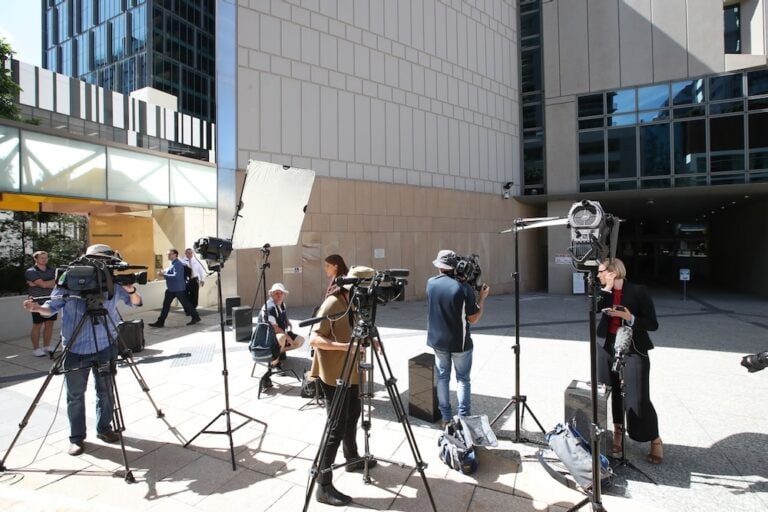(IFJ/IFEX) – The following is an IFJ media release: Australian government’s media reforms threaten freedom of expression The International Federation of Journalists (IFJ) is calling on the Australian Government to abandon new media ownership laws that were passed by the Parliament earlier this week after the laws triggered almost $US5 billion in frenetic sharemarket trading […]
(IFJ/IFEX) – The following is an IFJ media release:
Australian government’s media reforms threaten freedom of expression
The International Federation of Journalists (IFJ) is calling on the Australian Government to abandon new media ownership laws that were passed by the Parliament earlier this week after the laws triggered almost $US5 billion in frenetic sharemarket trading in just three days.
The new laws promise to undermine media diversity by encouraging concentration through the abandonment of Australia’s cross media and foreign ownership restrictions.
The laws would permit the number of media “voices” in a city media market to be reduced to five, and in regions to four – currently there are between 13 and 11 major media owners in the two major cities of Sydney and Melbourne respectively.
The most recent sharetrading activity came yesterday when Rupert Murdoch’s News Corporation spent $A360 million buying a 7.5% stake in newspaper rival Fairfax Media – a company which is seen as vulnerable to takeover under the new laws. Earlier in the week, just 90 minutes after the news laws were passed in Parliament, Australia’s richest man, James Packer, spun off most of his Publishing & Broadcasting Limited’s media assets (a leading TV network and magazine publisher) in a $A5.5 billion ($US4.2 billion) deal with an overseas private equity firm. And the day before, Kerry Stokes’ Seven TV Network bought 14.9% of WA Newspapers for $193 million.
Aidan White, general secretary of the IFJ, says: “Australia already has the highest concentration of media ownership in the developed world. This sharetrading manoeuvring by a mere handful of Australia’s most powerful media groups is an appalling indication of the frenetic trading activity which would take place if these new media laws are proclaimed by the Australian government. The new laws are not even in operation and already media diversity is being undermined.
“If laws lead to fewer voices in a media landscape then that is an attack on the right to freedom of expression. Where the government decides to change existing legal protections to permit media outlets to be swallowed up by powerful corporations in a spate of multi-million dollar takeovers there is no benefit to society. If there are fewer voices there are fewer voices. And in a democracy, when the power to control news and information is reduced to a handful, then that is a fundamental assault on democracy,” White says.
Past experience shows that due to the high debt accumulated in bouts of media takeovers, media companies will sack hundreds of media workers as part of cost-cutting programs, thereby reducing not only the number of media outlets but further contracting the number of journalists working in the industry.
“The ramifications of abandoning the cross media laws in Australia have quickly become apparent. The Government must abandon this legislative reform now – because once the industry has been destroyed, you cannot expect to ever turn the clock back again,” White says.
The IFJ has more than 500,000 members in over 100 countries worldwide.


